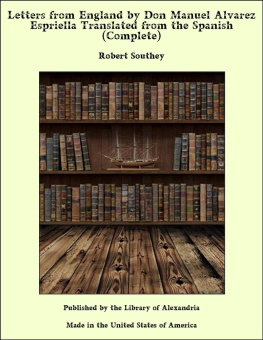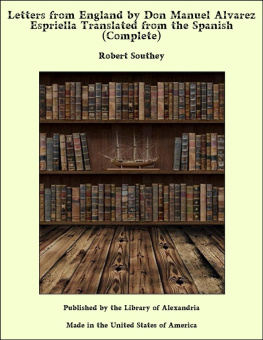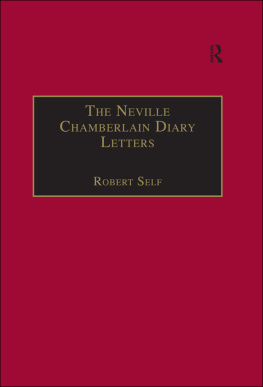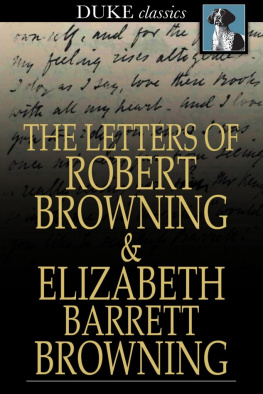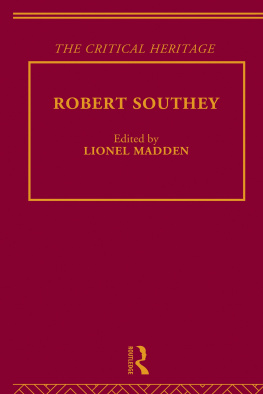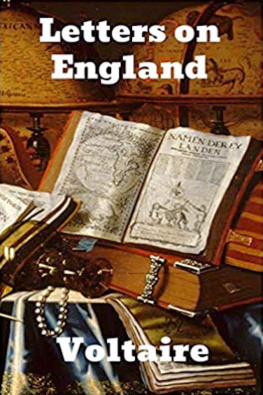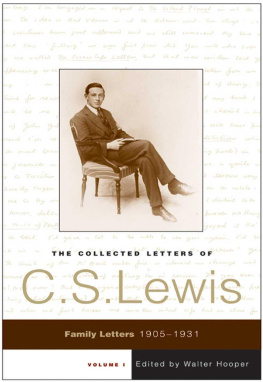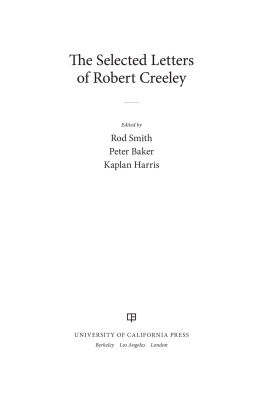Robert Southey - Letters from England, Volume 3 (of 3)
Here you can read online Robert Southey - Letters from England, Volume 3 (of 3) full text of the book (entire story) in english for free. Download pdf and epub, get meaning, cover and reviews about this ebook. year: 2020, publisher: Independently Published, genre: Detective and thriller. Description of the work, (preface) as well as reviews are available. Best literature library LitArk.com created for fans of good reading and offers a wide selection of genres:
Romance novel
Science fiction
Adventure
Detective
Science
History
Home and family
Prose
Art
Politics
Computer
Non-fiction
Religion
Business
Children
Humor
Choose a favorite category and find really read worthwhile books. Enjoy immersion in the world of imagination, feel the emotions of the characters or learn something new for yourself, make an fascinating discovery.
- Book:Letters from England, Volume 3 (of 3)
- Author:
- Publisher:Independently Published
- Genre:
- Year:2020
- Rating:4 / 5
- Favourites:Add to favourites
- Your mark:
- 80
- 1
- 2
- 3
- 4
- 5
Letters from England, Volume 3 (of 3): summary, description and annotation
We offer to read an annotation, description, summary or preface (depends on what the author of the book "Letters from England, Volume 3 (of 3)" wrote himself). If you haven't found the necessary information about the book — write in the comments, we will try to find it.
Letters from England, Volume 3 (of 3) — read online for free the complete book (whole text) full work
Below is the text of the book, divided by pages. System saving the place of the last page read, allows you to conveniently read the book "Letters from England, Volume 3 (of 3)" online for free, without having to search again every time where you left off. Put a bookmark, and you can go to the page where you finished reading at any time.
Font size:
Interval:
Bookmark:
FROM
ENGLAND:
DON MANUEL ALVAREZ ESPRIELLA.
TRANSLATED FROM THE SPANISH.
VOL. III.
THIRD EDITION.
PRINTED FOR LONGMAN, HURST, REES, ORME, AND
BROWN, PATERNOSTER-ROW.
Printed by James Ballantyne and Co.
OF THE
THIRD VOLUME.
| Page |
| LETTER LIV |
| The Bible.More mischievous when first translated than it is at present: still hurtful to a few, but beneficial to many.Opinion that the Domestic Use of the Scriptures would not be injurious in Spain |
| LETTER LV |
| Curiosity and Credulity of the English.The Wild Indian Woman.The Large Child.The Wandering Jew.The Ethiopian Savage.The Great High German Highter-Flighter.The Learned Pig |
| LETTER LVI |
| Newspapers.Their Mode of falsifying Intelligence.Puffs.Advertisements.Reviews, and their mischievous Effects.Magazines.Novels |
| LETTER LVII |
| Account of the Quakers |
| LETTER LVIII |
| Winter Weather.Snow.Christmas.Old Customs gradually disused |
| LETTER LIX |
| Cards.Whist.Treatises upon this Game.Pope Joan.Cards never used on the Sabbath, and heavily taxed.Ace of Spades |
| LETTER LX |
| Growth of the Commercial Interest.Family Pride almost extinct.Effect of heavy Taxation.Titles indiscriminately granted.Increase of the House of Peers |
| LETTER LXI |
| Despard's Conspiracy.Conduct of the Populace on that Occasion.War.The Question examined whether England is in Danger of a Revolution.Ireland |
| LETTER LXII |
| Account of Swedenborgianism |
| LETTER LXIII |
| Jews in England |
| LETTER LXIV |
| Infidelity.Its Growth in England and little Extent.Pythagoreans.Thomas Tryon.Ritson.Pagans.A Cock sacrificed.Thomas Taylor |
| LETTER LXV |
| Eagerness of the English to be at war with Spain |
| LETTER LXVI |
| Excursion to Greenwich.Watermen.Patent Shot Tower.Albion Mills.Essex Marshes |
| LETTER LXVII |
| Spanish Gravity the Jest of the English.Sunday Evening described.Society for the Suppression of Vice.Want of Holidays.Bull-baiting.Boxing |
| LETTER LXVIII |
| The Abb Barruel.Journey of two Englishmen to Avignon to join a Society of Prophets.Extracts from their Prophetical Books |
| LETTER LXIX |
| Account of Richard Brothers |
| LETTER LXX |
| Account of Joanna Southcott |
| LETTER LXXI |
| The Coxcomb.Fashionables.Fops.Egyptian Fashions.Dances.Visiting.Walkers.The Fancy.Agriculturists.The Fat Ox.The Royal Institution.Metaphysics |
| LETTER LXII |
| Westminster Abbey on FireFrequency of Fires in England.Means devised for preventing and for extinguishing them; but not in use |
| LETTER LXIII |
| Remarks on the English Language |
| LETTER LXXIV |
| Departure from London.West Kennet.Use of the Words Horse and Dog.Bath.Ralph Allen.The Parades.Beau Nash.Turnspits |
| LETTER LXXV |
| Road from Bath to Bristol.Cornu Ammonis.Bristol.Exchange.Market.Cathedral.The Brazen Eagle.Clifton.Bristol-Wells.Anecdote of Kosciusko |
| LETTER LXXVI |
| Journey from Bristol to Plymouth.Advantages which the Army enjoys more than the Navy.Sailors.Journey to Falmouth |
LETTERS FROM ENGLAND.
Font size:
Interval:
Bookmark:
Similar books «Letters from England, Volume 3 (of 3)»
Look at similar books to Letters from England, Volume 3 (of 3). We have selected literature similar in name and meaning in the hope of providing readers with more options to find new, interesting, not yet read works.
Discussion, reviews of the book Letters from England, Volume 3 (of 3) and just readers' own opinions. Leave your comments, write what you think about the work, its meaning or the main characters. Specify what exactly you liked and what you didn't like, and why you think so.

